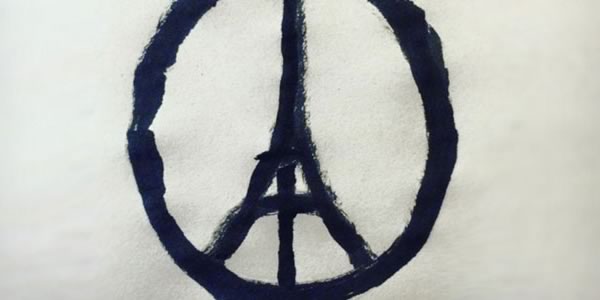Our comprehensive report on surveillance in Canada is available. Download it here.
November 2015
Snowden, Paris and the Encryption Question
- November 26, 2015

Just before the Paris attacks took place, the Queen’s Model United Nations Invitational featured a keynote address by NSA whistleblower Edward Snowden, delivered via video link to a full house. The address was skillfully moderated by Dr. David Lyon, Director of the Surveillance Studies Center at Queen’s University. Hours before the talk began students and faculty formed a line stretching down the street to secure their seats. A request to keep electronic devices off during the talk contributed to an intimate atmosphere that belied the distance between speaker and audience. Snowden presented in his trademark casual demeanour, with the occasional chuckle, frequent repositioning of his eyewear and routine pensive glances off camera.
Dr. Lyon, who recently published Surveillance after Snowden, introduced Snowden as a 'truth teller'. Lyon lauded Snowden for his ‘courageous work’ that has ‘blown open’ the discussion on government surveillance practices. A more developed framing of the significance of Snowden’s acts is offered in Lyon’s new book. Before taking questions Snowden relayed a personal account of his life trajectory from military youth to NSA employee and the eventual acquisition of a level of security intelligence clearance so high that few are even aware it exists. From this privileged vantage point he could see a dramatic discrepancy between what government agencies said they were doing in terms of data collection and what they were actually doing. He pointed to the well known exemplar of James Clapper lying to the Senate Intelligence Committee in 2013 when he claimed the NSA did not practice bulk data collection.
The secrecy of surveillance practices was a theme in Snowden’s responses. When asked by Lyon what concerned him most about mass surveillance, he first pointed to the lack of disclosure by government agencies to the citizenry about such programs. Snowden problematized this trend and linked it to the decline of government transparency in several Western nations particularly members of the ‘Five Eyes’. He was critical of the fact that these programs were not described to citizens, denying them any opportunity to inform their evolution. Under these conditions, Snowden argued, “we are no longer partner to the government, we are subject to it”. The evolution of the mass surveillance programs, according to Snowden, has been driven by an organizational culture in which individuals find it easier to permit the programs to continue than to raise concerns. Thus, he claims, “…we are increasingly ruled by groups that are less and less transparent”.
A lack of transparency excludes individuals that are external to the programs from participating in discussion about their efficacy and appropriateness. Snowden’s own assessment of mass surveillance is that it is “unsafe, ineffective and unlawful”, and “offers little to the war on terror”. He pointed to the paucity of proof that mass surveillance has prevented terrorist attacks, arguing that targeted intelligence gathering was far more effective. Moreover, Snowden argued mass surveillance erodes the conditions necessary for a functional democratic society such as the protection of privacy. In his opinion, not caring about privacy is like not caring about freedom of speech. Privacy, he argued, is “not about having something to hide, its about having something to lose”. At risk are spaces for individuals and groups to contemplate and organize around a common cause. Snowden asked the audience to consider the social progress produced by civil rights movements and the implications for social justice when these spaces are not protected.
The Paris attacks caused an immediate surge in the already heated global discussion on matters of encryption especially in relation to terrorism. In the wake of such a tragic loss of human life as a result of terrorism it is predictably difficult for advocates of privacy to gain traction on the encryption question. Particularly when it is widely believed that stronger encryption would prevent intelligence agencies from recognizing a similar threat in the future and intervening, thereby resulting in further loss of life. This is where the binary of privacy vs. security must be broken down, a gesture routinely made by Snowden in his video appearances and echoed by scholars, lawyers, technicians and civil rights groups. The evidence that mass surveillance contributes to national security has yet to be produced. Thus, rather than weakening encryption, diluting privacy and strengthening mass surveillance, the intelligent and principled approach, it seems, would be to stop watching the whole haystack, and focus instead on the infinitesimally small number of needles that are the greatest threat.





